- AdventHealth
Jose Alexander, MD, is a clinical microbiologist and director of microbiology, virology and immunology at AdventHealth Orlando. Dr. Alexander and his team have researched and developed several innovations, including a rapid test for brain-eating amoebas and cutting-edge solutions to combat the global threat of antibiotic-resistant superbugs. This opinion piece written by Dr. Alexander about the fight to combat antimicrobial resistance originally appeared on the AdventHealth MD website and was later featured in the Florida Medical Association newsletter.
One of the greatest health threats of our time is antimicrobial resistance (AMR). In other words, bacteria and fungi evolve and adapt to protect against antimicrobial agents to stay alive, resulting in infections becoming harder to treat and directly impacting our communities’ morbidity and mortality.
The World Health Organization reported in 2019 at least 700,000 deaths occur each year due to AMR and they warn that number could grow to 10 million by 2050, taking it higher than cancer deaths at 8.2 million.
Multiple times a day at the AdventHealth Orlando laboratory, we see multi-drug resistant (MDR) bacteria isolated, identified and categorized based on their resistance profile. Sadly, the most vulnerable patients (although not the only ones) are the ones battling against these organisms.
These MDRs, are typically bacteria or fungi that have developed resistance to one or more types of antimicrobials, which are key to combat them. Examples such as Methicillin-Resistant Staphylococcus aureus (MRSA), which has been named a superbug, and beta-lactams-resistant Streptococcus pneumoniae (commonly known as pneumonia and meningitis) are often encountered in our laboratory. MDR classification is part of our microbiological report to alert health care providers to the presence of these challenging organisms.
The role of microbiologists
Microbiologists provide clinically rational analysis of these organisms and their antimicrobial profile for therapeutic and epidemiological purposes to infectious diseases physicians, preventionists and pharmacists. This is my priority and contribution to fight the AMR crisis. Physicians can help in the fight by taking immediate action to create awareness and recognize AMR as a looming global medical issue.
By finding innovative ways to work in tandem with primary-care physicians, who are on the frontline of prescribing medicine, we can prevent this drug-resistant crisis.
The world is already experiencing the economic impact on the health care system, which is significant, and it does not seem to slow down as crucial medicines are becoming ineffective. The CDC estimated that the cost of AMR is $55 billion every year in the United States -- $20 billion for health care and about $35 billion for loss of productivity.
Although multiple causes are contributing to the rise of AMR, the high use of antimicrobials in the farming industry and the overuse of antimicrobials in the clinical setting are two of the main culprits.
Ways to Tackle Antimicrobial Resistance
A 2016 review on AMR that economist Jim O’Neill presented to the United Kingdom’s prime minister summarizes solutions to tackle this problem globally.
To positively affect the current landscape of infectious diseases, especially AMR, a microbiologist’s expertise can be a valuable resource for other physicians by incorporating two main approaches in the lab:
- Clear definition of MDR: Our clinical and epidemiological expertise in multidrug resistance (MDR) organisms along with our ability to identify, understand and classify them allows us to develop rapid detection algorithms, additional antimicrobial testing guidelines and rapid communication protocols to circumvent the crisis.
- Direct case intervention: Our clinical review of significant MDR cases, including an analysis of the organism’s resistance pattern, additional antimicrobial testing, and treatment is paramount for giving infectious diseases providers added context in real-life situations to offer actionable therapeutic information in difficult-to-treat cases.
By finding innovative ways to work in tandem with primary-care physicians, who are on the frontline of prescribing medicine, we can prevent this drug-resistant crisis.
With the ever-growing threat of antibiotic resistance, microbiologists are indispensable to the health care ecosystem. Not only can we unravel potential vulnerabilities of microscopic pathogens, but microbiologists can develop innovative strategies to combat them.
In collaboration with primary-care physicians, we can stand together against this drug-resistant crisis. By fostering an integrated approach, combining the meticulous investigative skills of microbiologists with the practical therapeutic acumen of clinicians, the battleground of antimicrobial resistance can be transformed, and the playing field leveled in this battle to save lives.
Recent News
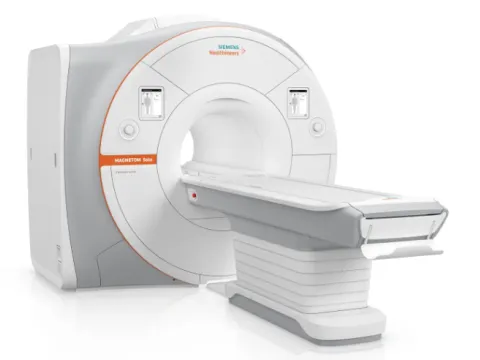
AdventHealth DeLand investing in next-generation MRI technology to enhance patient care
AdventHealth DeLand will soon install a new MRI system designed to deliver faster exams, sharper images and a more comfortable experience for patients in West Volusia.

Innovative new procedure offers hope for heart transplant candidates at high risk for rejection
Innovation at AdventHealth is driven by one purpose: helping people heal in body, mind and spirit. That innovation provided a path to survival and a better, healthier, life for heart transplant...

The hidden cancer one clinician caught – and the process improvements she says matter most
Shana Vongkhankeo, APRN, discovered an unusual thyroid enlargement during a routine physical for a teenage patient, leading to a life-saving cancer diagnosis that highlighted how being fully present...

How to stay mindful in body, mind and spirit this holiday season
As holiday demands grow, mindfulness provides a simple tool to stay present and steady, offering support for the mind, body and spirit during a busy season

AdventHealth Waterman strengthens access to expert specialty care with expansion of Mount Dora medical plaza
Second floor buildout adds orthopedics, sports medicine, women’s health and heart care for Lake County.
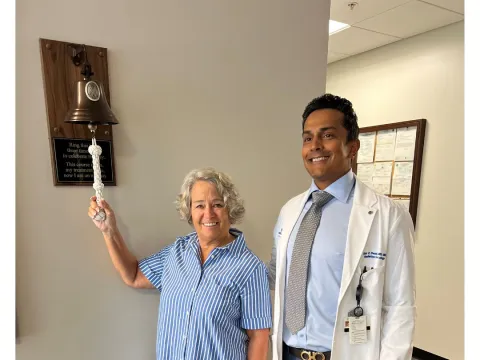
Expanding hope through innovation: AdventHealth advances cancer care across East Florida
Cancer touches nearly every family, and in Flagler, Lake and Volusia counties, the demand for timely, advanced care keeps rising. AdventHealth’s East Florida Division, which includes seven hospitals...
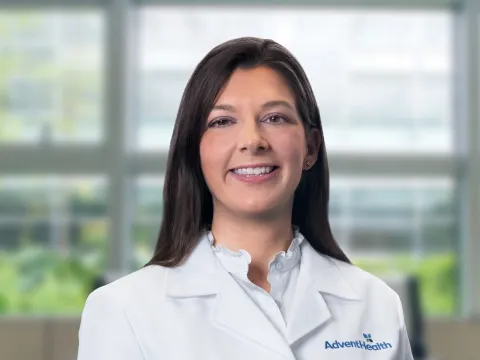
Amanda Robinson, DO, joins AdventHealth Medical Group Family Medicine, Internal Medicine & Pediatrics at Curtis Parkway
AdventHealth is pleased to announce that Amanda Robinson, DO, has joined AdventHealth Medical Group Family Medicine, Internal Medicine & Pediatrics at Curtis Parkway.

Helping the Helpers: Spotlight on AdventHealth Avista’s Director of Supply Chain, Mike Vos
For Mike Vos, Director of Supply Chain at AdventHealth Avista, caring for others isn’t just part of the job - it’s woven into his family story. With a mother who is a career nurse and now Director of...
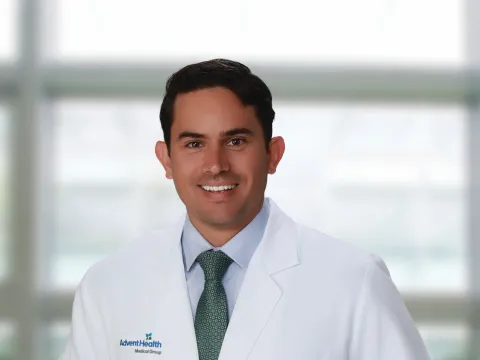
New surgeon expands local access to advanced colorectal care in Volusia County
Dr. Mark Heimberger joins AdventHealth as part of its continued investment in bringing minimally invasive and robotic colorectal treatment options to the region’s growing community.
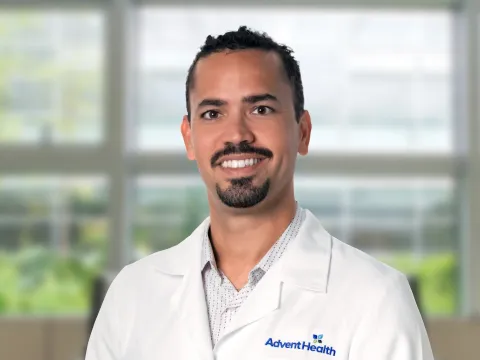
Albit Paoli, MD joins AdventHealth Medical Group Orthopedics & Sports Medicine
AdventHealth is pleased to announce that Albit Paoli, MD, has joined AdventHealth Medical Group Orthopedics & Sports Medicine at Calhoun and AdventHealth Medical Group Orthopedics & Sports Medicine at...

Fueling healthy futures for Flagler’s student athletes
Early practices, full class schedules, and evening games can push student athletes to their limits, and proper nutrition is essential to keeping them strong and focused. AdventHealth has introduced...

When seconds count: How a community of heroes saved one little girl
It was a day like any other — until the phone rang. For Ellison’s mom, that call froze time: “You need to get here right away.”
